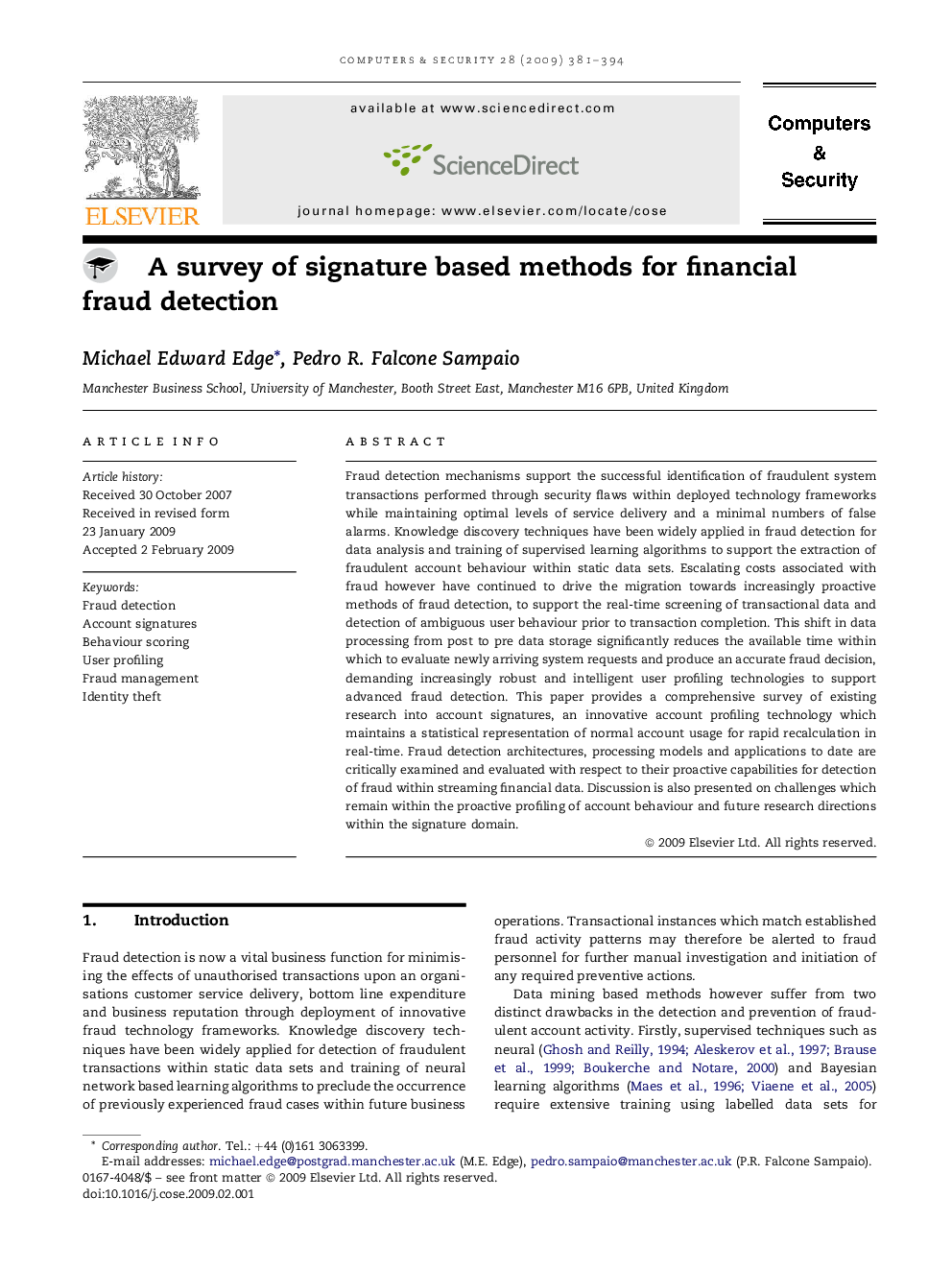| Article ID | Journal | Published Year | Pages | File Type |
|---|---|---|---|---|
| 456169 | Computers & Security | 2009 | 14 Pages |
Fraud detection mechanisms support the successful identification of fraudulent system transactions performed through security flaws within deployed technology frameworks while maintaining optimal levels of service delivery and a minimal numbers of false alarms. Knowledge discovery techniques have been widely applied in fraud detection for data analysis and training of supervised learning algorithms to support the extraction of fraudulent account behaviour within static data sets. Escalating costs associated with fraud however have continued to drive the migration towards increasingly proactive methods of fraud detection, to support the real-time screening of transactional data and detection of ambiguous user behaviour prior to transaction completion. This shift in data processing from post to pre data storage significantly reduces the available time within which to evaluate newly arriving system requests and produce an accurate fraud decision, demanding increasingly robust and intelligent user profiling technologies to support advanced fraud detection. This paper provides a comprehensive survey of existing research into account signatures, an innovative account profiling technology which maintains a statistical representation of normal account usage for rapid recalculation in real-time. Fraud detection architectures, processing models and applications to date are critically examined and evaluated with respect to their proactive capabilities for detection of fraud within streaming financial data. Discussion is also presented on challenges which remain within the proactive profiling of account behaviour and future research directions within the signature domain.
